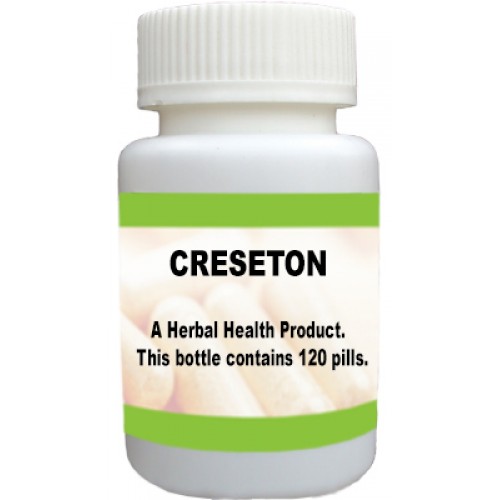Time-Tested Herbal Treatment for Bronchiectasis: Natural Ways to Improve Lung Function
Herbal Treatment for Bronchiectasis may provide natural relief from the troublesome symptoms of bronchiectasis if used correctly.
Bronchiectasis and Its Treatment Using Herbal Remedies
Are you looking for a way to improve your breathing and live a healthier life? Bronchiectasis, a form of chronic obstructive pulmonary disease (COPD), can be difficult to manage. In this article, I'm going to introduce you to some time-tested herbal remedies that have been used for centuries to naturally treat bronchiectasis and other respiratory issues.
From elderberry syrup and turmeric milk to eucalyptus oil and garlic-onion syrup, there are plenty of home remedies that can give your lungs the boost they need. I'll share my top tips for choosing the right Herbal Treatment for Bronchiectasis, as well as simple ways to incorporate it into your lifestyle. With the help of these herbs and oils, you can start breathing better in no time.
Herbal Supplements and Bronchiectasis: Nature's Help for Your Lungs
One of the best ways to improve your lung function and reduce symptoms of bronchiectasis is through natural remedies. Herbal supplements, also known as herbal medicine, are time-tested treatments for a variety of conditions, including bronchiectasis.
Herbal supplements have been shown to help reduce inflammation in your lungs, which can help clear mucous from air passages and open chest muscles for easier breathing. Other benefits of herbal supplements for bronchiectasis include:
Boost the immune system: Herbal supplements can strengthen the body’s natural defenses against infection and reduce inflammation.
Support healthy gut: Herbal supplements can help balance the gut microbiome, which plays an important role in controlling inflammation and promoting healthy lung function.
Clear away toxins: Herbal supplements help the body to rid itself of toxins that could contribute to further lung damage.
Adding Herbal Supplement for Bronchiectasis to your daily routine is a great way to start seeing results fast. Not only will you be able to breathe easier, but you'll also benefit from improved overall well-being.
Chinese Herbs for Bronchiectasis: Ancient Wisdom for Modern Ailments
When it comes to bronchiectasis, there are many reasons why taking a more natural approach can be beneficial. And within alternative medicine, Chinese herbs are often the best way to go.
After all, no one understands the power of traditional Chinese herbs better than those practicing Traditional Chinese Medicine (TCM). For thousands of years before modern medicine, TCM was the go-to source for treating ailments—bronchiectasis included.
Herbal Treatment for Bronchiectasis
From ginger and ginseng root to honeysuckle and mint leaves, Chinese herbs are known for their antifungal and antimicrobial properties. In addition to treating lung congestion, they help reduce inflammation and clear up infections that perpetuate bronchiectasis symptoms.
There are even specific blends of herbs that target bronchiectasis—like Bupleurum Lung Complex—that can be taken in pill form or as a tea. Of course, if you want to take this route, it's important to consult with your doctor or herbalist first.
Powerful Ayurvedic Herbs to Improve Bronchiectasis Symptoms
Are you looking for Herbal Remedies for Bronchiectasis to improve the symptoms? Ayurvedic herbs have been used for centuries to support respiratory health and ease lung inflammation.
Some of the most popular and powerful Ayurvedic herbs include:
Tulsi (Holy Basil)
Tulsi is thought to help reduce inflammation in the respiratory tract, promoting balanced mucus production and clearer breathing. It’s also known for its anti-allergenic properties, making it a great choice if bronchiectasis is triggered by allergens.
Ginger
Ginger is powerful enough to reduce inflammation and has been known to ease bronchiectasis symptoms. It also helps thin mucus secretions, making them easier to cough out. It is the best Herbal Treatment for Bronchiectasis.
Turmeric
Turmeric has strong antioxidant properties that help support respiratory health and reduce inflammation throughout the body; it also helps improve immunity, which can make it easier to recover from bronchiectasis flare-ups.
By incorporating these herbal remedies into your daily routine, you can potentially alleviate bronchiectasis symptoms or minimize their severity. Just be sure to talk with your doctor before taking any supplements or herbal remedies, as some may interact with existing medications or conditions you already have.
Essential Oils for Bronchiectasis: Simple Solutions Through the Sense of Smell
You may be wondering if aromatherapy can help with bronchiectasis. After all, what does smell have to do with lung function and breathing?
The truth about essential oils is that they are incredibly powerful for improving bronchiectasis symptoms! Essential oils can alleviate inflammation in the respiratory tract and provide anti-bacterial, anti-microbial protection. Moreover, inhaling essential oils can stimulate your natural defenses, making it easier to fight off infections.
Inhaling certain essential oils has been associated with:
Increased airway clearance
Improved oxygen saturation levels
Reduced inflammation of the lungs
Enhanced elimination of mucus from the lungs
Essential oils can be inhaled through a diffuser or applied directly to the skin. Lavender oil is especially popular for treating bronchiectasis since it has antiseptic properties that reduce infection while soothing and calming your airways. Peppermint oil is often recommended for its antispasmodic effects which help in easing spasms of coughing in very severe cases of bronchiectasis. As always, consult your doctor before using any Herbal Treatment for Bronchiectasis!
Home Remedies for Bronchiectasis: Simple Steps for Natural Relief
You may not know this, but there are Natural Remedies for Bronchiectasis that you can use to help clear your breathing. Of course, these should only be used after consulting your doctor, and they should not serve as a replacement for other treatments.
Ginger
Ginger is a root that is loaded with antioxidants and anti-inflammatory compounds that can help reduce inflammation and swelling in the lungs and bronchial tubes—something essential for Herbal Treatment for Bronchiectasis. You can either add ginger to your food or make tea with it by boiling a few slices of ginger in hot water.
Turmeric Tea
Turmeric is another powerful antioxidant and anti-inflammatory that you can incorporate into your diet to help with bronchiectasis. Make tea by boiling it in hot water along with some fresh ginger, honey, lemon juice, and black pepper.
Licorice Root Tea
Licorice root has been used for centuries to treat respiratory issues like bronchiectasis because of its expectorant properties—it helps loosen up mucus in the lungs. To make licorice root tea, steep 1 teaspoon of licorice root powder in 1 cup of hot water for 15 minutes before drinking.
Lifestyle Changes and Bronchiectasis: Holistic Ways to Complement Herbal Treatment
When it comes to bronchiectasis, just like with anything else, focusing on lifestyle changes alongside Herbal Treatment for Bronchiectasis can help you make even greater progress. That said, here are some holistic approaches that can help you breathe easier if you have the condition:
Quit smoking or reduce your exposure to secondhand smoke. This can be difficult to do, but if you're serious about breathing better and improving your lung health, it's a must.
Exercise regularly. As recommended by medical professionals, exercise helps improve lung function and keep your lungs strong over time.
Get proper nutrition and rest. Eating nutrient-rich foods and getting plenty of rest can help support your body’s natural healing processes and strengthen your immune system — both of which are key for managing bronchiectasis over the long term.
Stay hydrated by drinking plenty of water throughout the day. Dehydration can worsen bronchiectasis symptoms like coughing and breathlessness, so make sure to drink enough water to keep your airways healthy and hydrated!
Keep your home clean by vacuuming regularly and dusting furniture frequently to reduce allergens in the air that could trigger flare-ups or serve as a home for dust mites which are also triggers for bronchiectasis symptoms.
Avoid contact with people who have colds or flu-like illnesses as much as possible—this will help minimize your chances of catching a respiratory infection which could set off wheezing episodes or exacerbations of the disease if you have bronchiectasis
Although it may seem counterintuitive, use a humidifier in your home to help maintain proper humidity levels — this is important because dry air irritates the lining of the airways which makes them more prone to infection, irritation, inflammation or obstruction from mucus build-up.

